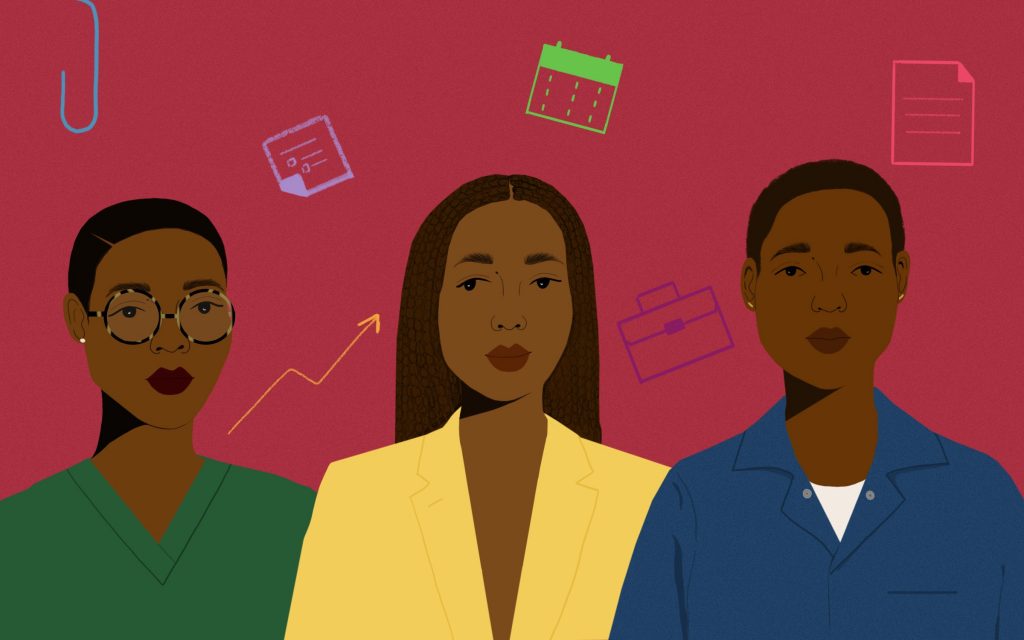
When we talk about factors of success, words such as talent, competence and hard work first come to mind. Yet, not only do cognitive science experts agree that luck is an underrated key element of success but most importantly they confirmed that luck is learnable skill.
Describing luck as a key element of success sounds out of place, and I get it…but please bear with me. I vividly remember the last meeting that I had during my final year of study, at the Diplomatic Academy of Vienna. During an open discussion, a student enthusiastically asked to the back then director of the institution: “Ambassador Winkler, what is your ultimate advice for us if we want to succeed in our future career?” “Luck!” he answered to our greater shock…we were seriously appalled by such a trivial answer. So we thought…
I will not lie to you back then, I was fairly disappointed by this answer of course he elaborated his answer but my younger mind could not grasp the essence of his message: “success is made, by showing at the right time and at the right place and most importantly know how to turn things around”.
Surprisingly, several experts actually back up his stance. I recently discovered the findings of the French professor of organizational behavior and leadership at the renowned ESCP Europe Business School, Phillipe Gabillet. Indeed, the French scholar who also worked in the industry private sector for over two decades, studied and accompanied successful leaders.
He eventually came to the conclusion that not only can luck be created but more importantly that being lucky is actually a learnable skill, providing one set up the right actions. Of course, we are not talking here about mere “Chance”, random coincidence or fate. Gabillet argues that people who are consistently lucky, are not accidentally favored by external circumstances but have developed internal habits and certain sets of habits.

So what is luck? Luck is a habit that some people have that create conditions around which can potentially bring about opportunities. Cognitive sciences and positive psychology even define luck as “an optimal adaptive behavior to circumstances, whether they are good or bad”.
Seriously lucky people just know how to beat the odds. This capacity is manifested in their attitudes, and their relations, through their actions all aiming at opening up new spaces and windows of opportunities.
While supporting managers and leaders in their career development, M. Gabillet has identified 4 forms in which opportunities can appear in people’s lives:
- Encounters : opening up to new options and possibilities
- Information : seizing relevant information can powerfully impact current concerns and ongoing projects
- Responsiveness to decisions made and events happening in our immediate envoronement or beyond
- Requests: being able to perceive in clients, collaborators, supervisors their underlying requests or needs for information, support or any other kind of solution
You can tell me “Hawa, this is very nice” but concretely how does it work? Well, in order to create conditions for luck to emerge here are 4 attitudes that will help you create your own luck and more than once:
1. Be aware

First of all, you have to be curious and willing to explore new possibilities. Indeed, in order to create windows of opportunities you have to ride the current and know about the shifts, changes, and trends happening around you.
Dr. Richard Wiseman, author of the book “The Luck Factor”, conducted intensive interviews and experiments with over 400 volunteers. After nearly 10 years of studying what makes other people lucky, he pointed out that lucky people are good at noticing and acting upon opportunities around them. They are alert when negative people overlook potential opportunities because they are jaded. “Lucky people just try stuff. Unlucky people suffered from paralysis by analysis. They wouldn’t do anything until they walked through every single angle and by then the world would have moved on. They don’t reap the benefits of learning through doing. I’m a big fan of starting small, trying lots of projects, seeing what works and what doesn’t, and iterating based on feedback.” – Richard Wiseman.
Your curiosity will get you exposed to new activities, people and a wider array of possibilities. Luck hates routine and established habits. From his study, Dr. Wiseman, found out that lucky people are open to embracing change and do not systematically say no to the opportunities to try new things. They are also willing to explore new ways of doing usual business or assignment. Doing different things allow new events to happen. It’s very obvious but most of us tend to forget it.
“Lucky” people look outside the box of their daily routine; they believe that good luck is predictable if they take more chances. It is not only about being at the right place and at the right time but it is also about having the right mindset.
2. Anticipate and be intentional

As Louis Pasteur once said, “Fortune favours those who are well prepared”. Indeed, luck operates as a head hunter. You have to be clear about your goals because it makes you more aware of opportunities around you related to those goals. The more you are inhabited by a project, the more you have an expectation and a strong desire to achieve something, the machinery to identify opportunities is definitely switched on…
You will be internally attuned and well-disposed to identify the right encounter, the right information, the relevant decision, hear the request that others around failed to perceive. I remember a colleague and friend of mine, Estelle who really wanted to expand her professional horizons and have a field experience in a developing country. As a go getter she applied to several positions abroad but none of them came to pass, however, Estelle’s desire was so strong that she was intent on making it happen sooner or later. A newly appointed official who recently joined the team was struggling with IT reporting platform of the company. Estelle, noticed the struggle of the team leader and volunteered to help her out even though she belonged to another department. Very soon, Estelle was so efficient that the new official hired her in her direct team. Not only did this staff find out at a later point that Estelle wanted a field experience. She supported her in her endeavours and arranged for an expatriation in a developing country to her greater delight.
3. Network effectively

Luck hates isolation! Yes indeed, to be lucky you have to be connected to other people. Therefore your network plays a big role. Beware there is a good way (giver mentality) of networking but also a bad to way of networking (taker mentality). To develop one’s networking skills does not mean to attend all networking events (which is impossible anyways), or collect the maximum number of business cards, or pitching aggressively about your business and skills at all professional or social gatherings. Instead primarily focus on connecting with others (finding out stories, interests, talents, project’s hiccups, etc.). More importantly try to add value to others for instance by providing them with a contact or information that may help solve a business or personal challenge without expecting anything in return. People are not naïve, they can smell a scrounger miles away… After all, nobody wants to be used. The “taker vibe” kills any attempt to form a genuine, solid and sustainable business or personal relationship.
Networking can open doors for you in unexpected ways. To illustrate my point, I would like to share with you the story of a close friend of mine. Christine, completed a Master’s degree a several months ago and was on active job search sending numerous applications. The responses and the job interviews she attended were not very promising so far. Christine has never been a fan of self-promotion or networking. Yet out of interest and curiosity she decided to attend a conference on a topic close her heart sustainable development and energy. Quite impressed by the quality of the interventions on the experts’ panel, she spontaneously and unassumingly approached one of the panelists, curious to find out about her background and ask her question on topic raised during the presentation. Their interaction was fluid and their connection so genuine that the expert ended up asking questions to Christine about her professional background, one thing leading to another she eventually informed and recommended Christine for a work opportunity and this is how my friend landed her current position.
4. Learn how to recycle bad luck and mishaps

Even people who are lucky have mishaps or experience negative circumstances but they have developed the habit of turn things around to their advantage. Indeed they have adopted a resilient attitude that help them transform bad luck into good luck. What happened to you does not matter, what matters is what you do about it!
In order to continue to create your own luck, you must constantly remind yourself that there is never a defined finish line or end goal. There’s always opportunity to continue learning and growing.
This resilient and proactive mindset is only possible when you consider failure, setback, or bad circumstances as a starting point, some raw material to build on something new.
For example, my friend Safia, a very competent young professional, was working in a reputable institution, and was also making a very decent amount of money. However after a few years of major conflicts in her workplace her relationship with her supervisor became so strained that she was forced to resign at a later point.
To her colleagues, friends and family, this resignation looked like a setback, especially when considering she gave everything she had on this job.
However, Instead of whining and feeling sorry for herself, Safia took the opportunity to turn back to a real passion for research and went on to complete a PhD. During her doctoral studies, she took a chance to participate in a call for proposals and submitted her project proposal to a Development Agency. Not only did she get the funds to implement the project, but she was appointed as the project coordinator leading a diverse and polyvalent team on an innovative and forward-looking project.
During the implementation of her project, Safia was smart about promoting the findings of her thesis and getting in touch with major institutions and private investors, who are now committed to supporting her project of launching a private company when she graduates from her PhD.
My friend’s story is the perfect example of recycling skills from bad circumstances into new (and incredible) opportunities, and the benefits that she is reaping now are exceeding what she had expected in the first place.
In a nutshell, you can create your own luck by taking on certain habits such as developing your awareness, sharpening your sense of anticipation, consistently networking and building your resilience muscle. Finally, adopting a mindset of helping others to achieve their objectives and also being an opportunity for others, this approach will surely be an asset to enhance your luck. As several experts emphasized it, helping others increase your own luck. People who are more selfless and give more than they receive always find it comes back to them.
It is one of the beautiful compensations of life that no man can sincerely try to help another without helping himself
Quote from Ralph Waldo Emerson
And you, do you have any other tips to create luck?
Leave a Reply